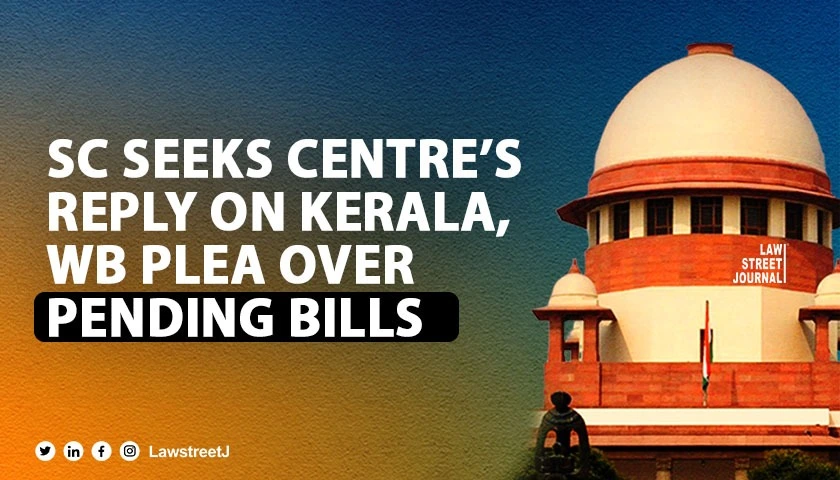NEW DELHI: The Supreme Court on Friday sought a response from the Centre and Additional Chief Secretary of the Governors of Kerala and West Bengal on separate petitions filed by the state governments alleging non action on Bills passed by the legislatures.
A bench of Chief Justice of India D Y Chandrachud and Justices J B Pardiwala and Manoj Misra issued notice to the respondents on the petitions by two state governments.
They questioned the delay in the Governors' decisions as they kept several bills pending for months, either refusing to assent them or reserving them for President's consideration.
"Let the reply be filed in three weeks and also a joint note be submitted from the States," the bench said upon submissions by senior advocates K K Venugopal and A M Singhvi, appearing for Kerala and West Bengal governments respectively.
Venugopal said that there was a need for the court to lay down guidelines on this issue as to when the Governors can return and refer Bills to the President.
He said this court should tell the Governor on when they can refuse to assent and when they can refer the Bills to the President.
Also Read: Journalists conducting stings without mala fide intent cannot be prosecuted: Kerala HC [Read Order]
"There is a confusion in the minds of various Governors in the country as to what their powers are in regard to assenting to bills," he said.
In Kerala case, he said out of eight Bills, two of them had been kept pending for 23 months, one for 15 months, another for 13 months and others for 10 months.
"Now, it is a very sad state of affairs. This is a confusion among the Governors that they keep bills pending. This is against the Constitution," he said.
On behalf of the West Bengal government, Singhvi said that everytime the court hears the matter, some bills are cleared.
He said, the same thing happened in Tamil Nadu case as well.
In its writ petition, the Kerala government challenged the action or reconsideration of President Droupadi Murmu in withholding assent for four out of the seven Bills referred by the Kerala Governor.
It questioned the Governor's action of referring the Bills to the President, contending that none of the bills related to Centre-State relations and required the Presidential assent.
The West Bengal government, on the other hand, contended the Governor by not acting on eight Bills since 2022 affected rights of the residents of the state.
The Governor has to act "as soon as possible" as per the proviso of Article 200, meaning within a reasonable time, and further urgently and expeditiously without any avoidable delay, it said.
"The conduct of the Governor, not only threatens to defeat and subvert the very fundamentals and basic foundation of our Constitution, including the rule of law and democratic good governance, but further proceeds to infringe upon the rights of the people of the State," the TMC government said.

















